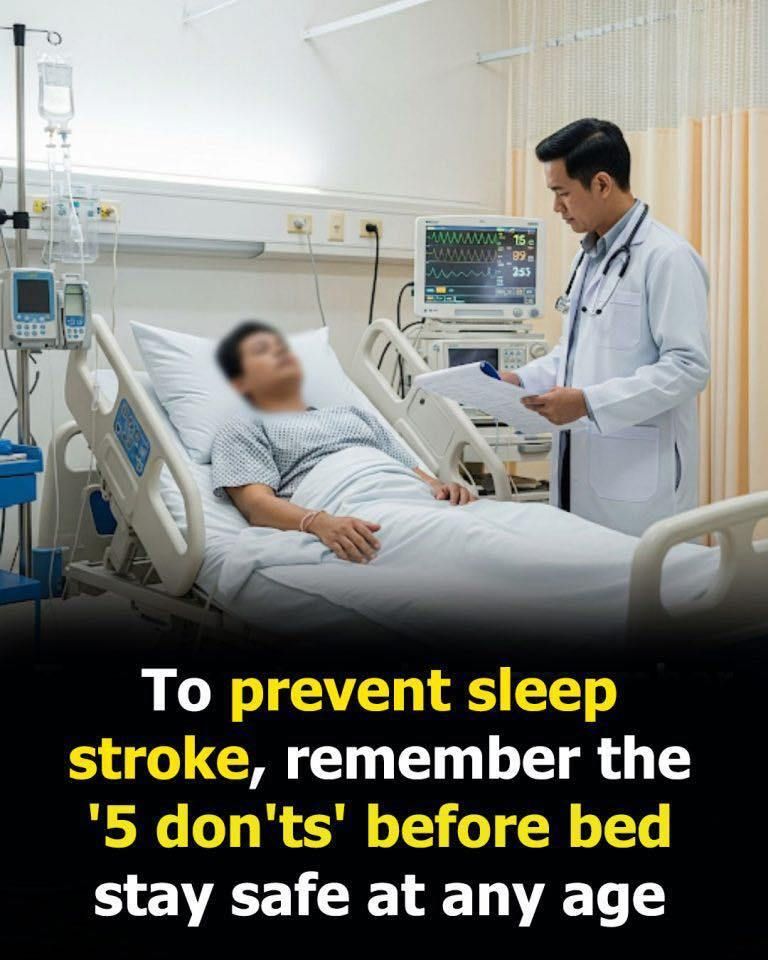Consistently sleeping less than 7 hours—or tossing and turning all night—raises your risk of stroke. Poor sleep worsens blood pressure, blood sugar, and inflammation. Set a consistent bedtime and wake time, even on weekends.
2. Stay Hydrated (But Not Too Much)
Mild dehydration thickens your blood, raising clot risk. A small glass of water about an hour before bed is often enough. Avoid chugging too much liquid right before bed to prevent nighttime bathroom trips that disturb rest.
Ezoic
3. Take Prescribed Medications on Time
If you’ve been prescribed medications for high blood pressure, atrial fibrillation, or high cholesterol, follow your doctor’s instructions carefully. Some blood pressure medications work best when taken at night. Consistency is key for protection.
4. Relax Your Body and Mind
Wind down with calming routines—light stretching, deep breathing, or meditation. Reading a book, listening to soft music, or journaling can also help. The goal is to tell your body it’s safe to rest, reducing stress-related surges in blood pressure.
5. Use Your CPAP Machine If You Have Sleep Apnea
Untreated sleep apnea causes dips in oxygen levels and spikes in blood pressure. This significantly increases stroke risk. If you’ve been diagnosed, using your CPAP device nightly is one of the most powerful ways to protect your vascular health.
Ezoic
6. Take a Gentle Walk After Dinner
